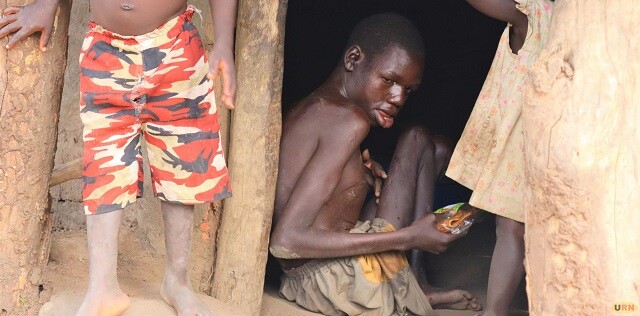KITGUM, UGANDA: Districts in the Acholi sub-region with nodding syndrome cases have been asked to integrate nodding syndrome care within their existing programs.
Recently, there has been a renewed call by leaders in the Acholi sub-region to the government, to remember the plight of families with nodding syndrome cases and intervene.
Last month, the Kitgum District Woman MP, Lilian Aber moved a motion in Parliament asking it to resolve that government prioritizes the interventions, saying despite the over 1,000 cases of nodding syndrome in Kitgum, the Mental Health Department in Kitgum Hospital was understaffed and unable to carry out outreaches to assist the victims.
Aber also requested the government to earmark some finances to revitalize the dilapidated nodding syndrome care centers and provide relief to the survivors and their families among others.
Paul Okot Okello, the Commissioner for District Services in the Ministry of Local Government says that all the cases should be managed from home because there are no new cases.
Okello advised the districts to use the existing health facilities, the community, government programs, and partners to attend to the old cases. Okello said that all services in the country have been regionalized and that each district must have its own approach to manage its challenges and provide services to the locals.
The call came following claims of lack of accountability of 1.334 billion Shillings disbursed in the 2018/2019 financial year to districts with nodding syndrome cases.
Grace Freedom Kwiyocwiny, the State Minister for Northern Uganda, during an assessment of the nodding syndrome situation in Kitgum on Tuesday, said the districts should plan within their district health departments for the care of people with nodding syndrome.
Out of the 1.334 billion shillings, Kitgum district received over 237 million but it was not accounted for.
Kwiyocwiny added that besides the 237 million Shillings, at least 12 families affected by nodding syndrome were each given 18 million shillings under NUSAF III, for various income-generating activities, but it is not clear if the funds changed their livelihood.
She said they are only left with requesting the government to increase financial support to families that utilized the money well.
According to Kwiyocwiny, there is contradicting data on the number of cases of nodding syndrome.
Statistics from Lamwo, Kitgum, Pader, and Omoro which were tabulated on Tuesday indicated that there are 1,728 cases of nodding syndrome in the four districts. However, Kwiyocwiny said data from the Ministry of Gender, Labor and Social Development indicates that there are 1,864 households, while data given in 2018 indicates that there are 970 households, with each having two nodding syndrome cases.
Kwiyocwiny advised all the districts with nodding syndrome cases to line list the nodding syndrome cases by Friday, so that the same data is presented across the board and that whatever is done towards nodding syndrome is orderly.
The Minister of State for Health General Duties, Hanifa Kawooya through a statement read by Kwiyocwiny, noted that because of the lack of accountability of the 1.334 billion nodding syndrome funds, the MoH no longer receives funds for nodding syndrome.
“To date, no accountability has been received, hence no more appropriations except for medicines to the National Medical Stores.”
If you would like your article/opinion to be published on Uganda’s most authoritative news platform, send your submission on: [email protected]. You can also follow DailyExpress on WhatsApp and on Twitter (X) for realtime updates.



